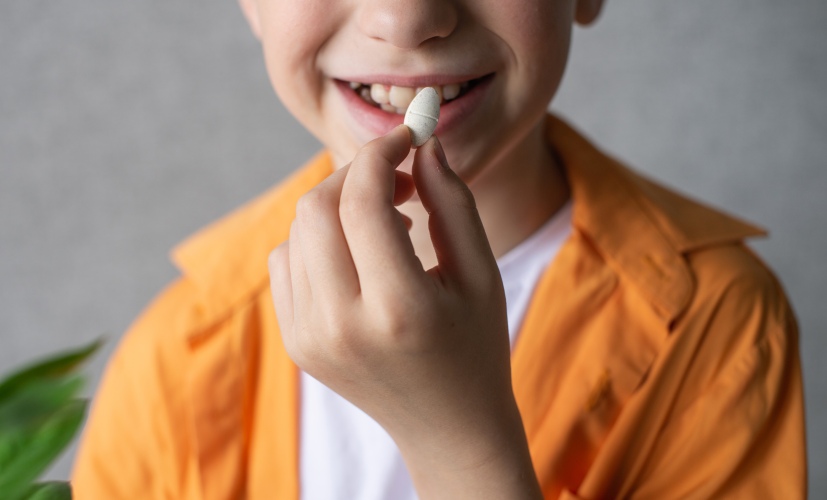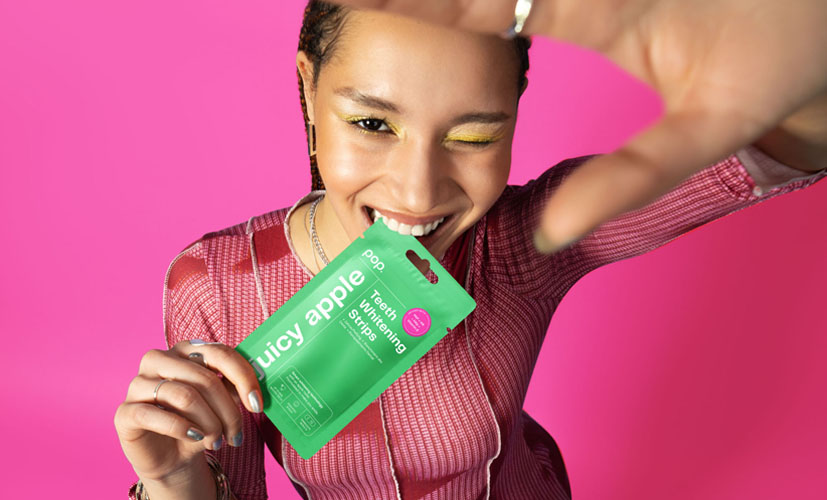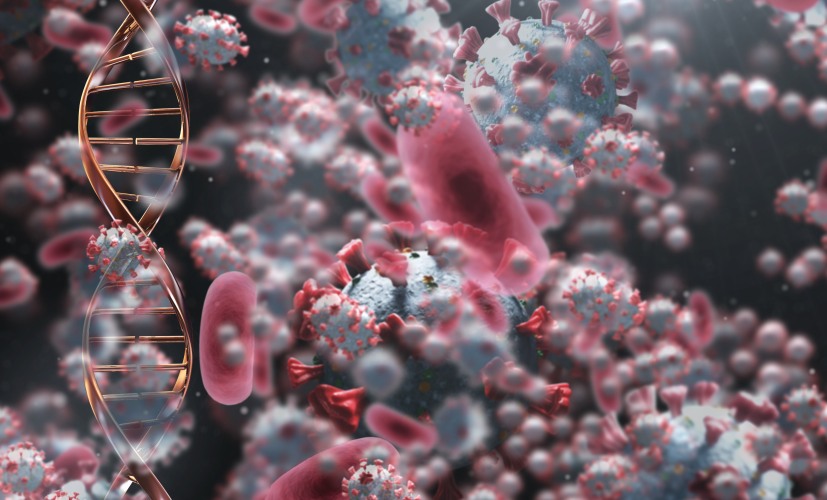
Contents
What Are Children’s Probiotics?
Why Are Probiotics Necessary for Children?
When Is It Advisable for Children to Take Probiotics?
How Are Probiotics Taken?
Can Taking Probiotics Cause Side Effects?
How to Choose the Most Suitable Probiotic for Your Child?
Of course, there are differing opinions on the matter—some consider them an essential part of child development, while others are more cautious and unsure whether their child needs them. To answer this question, this article will focus on probiotics and their effects. Additionally, we will explain when, how, and why they are necessary.
What Are Children’s Probiotics?
Children’s probiotics are complexes of live microorganisms, mainly bacteria but also yeasts, used to improve gut flora and strengthen the immune system. These beneficial microorganisms resemble the natural bacteria in the intestines and support the normal functioning of the gastrointestinal tract and immune defense.
Taking quality probiotics is especially important for children’s health because, as you know, their immunity is weaker than that of adults. This makes it harder for their bodies to fight viruses, bacteria, etc. During such times, the balance of the gut microbiota can be easily disturbed, affecting not only digestion but also the child’s overall health. Thanks to probiotics, however, this balance can be naturally restored.
Some of the most popular probiotic strains used in children include:
- Lactobacillus rhamnosus GG – a probiotic for diarrhea that can help restore normal gut flora, reduce the duration and severity of symptoms, and assist the child’s body in fighting viral and bacterial infections;
- Bifidobacterium infantis – a natural inhabitant of the child’s gut that supports digestion;
- Lactobacillus reuteri – a probiotic for bloating and gas, used for colic and stomach discomfort in infants;
- Saccharomyces boulardii – a type of yeast used for acute digestive issues.
- It is important to emphasize that each strain has specific functions and effects. For this reason, consulting a doctor before purchasing a probiotic for children is advisable.
Why Are Probiotics Necessary for Children?
Probiotics are an important part of caring for a child’s health. To support this claim, we will review their main functions below.
Maintaining Gut Flora
Probiotics help restore and maintain the normal function of gut flora, especially after infections or antibiotic treatment. This is because they create an unfavorable environment for harmful bacteria, reducing the risk of gastrointestinal disturbances.
Improving Digestion
The digestive system in children, especially the youngest, is not fully developed. This can cause discomfort after eating, such as bloating, colic, constipation, and diarrhea. In such cases, probiotics can be useful because they support normal digestion and reduce inflammation in the gastrointestinal tract.
Boosting Immunity
Seventy percent of immunity is located in the gut. For a child to grow healthy, it is important to maintain the balance of their gut flora as it plays a key role in protecting against infections and harmful microorganisms. Probiotics can help strengthen the intestinal barrier by promoting the growth of beneficial bacteria and keeping the immune system active and ready to fight off harmful microbes.
When Is It Advisable for Children to Take Probiotics?
As noted, probiotics have many benefits for children’s health. However, this does not mean they should be taken without reason. Below are some situations where taking such a product is truly necessary. Before proceeding, it is important to reiterate that consulting a healthcare professional before purchasing a probiotic for your child is mandatory.
During Antibiotic Treatment
Antibiotics kill not only harmful but also beneficial bacteria in the gut. This can cause some discomfort like bloating, diarrhea, etc. To prevent this, it is advisable for children to take probiotics during or immediately after an antibiotic course. This can help restore gut balance and reduce the medication’s side effects.
For Diarrhea and Stomach Viruses
Probiotics can shorten the duration of diarrhea symptoms, especially when caused by viruses such as rotavirus. They restore balance in the gut flora by promoting the growth of beneficial bacteria, aiding faster digestion recovery.
For Constipation and Difficult Digestion
When a child suffers from constipation, some probiotic strains can improve bowel motility by stimulating normal digestive function. Taking probiotics is often key to quickly restoring gut flora balance, easing food passage through the gastrointestinal tract, and supporting proper digestion.
For Frequent Colds and Infections
Probiotics can help strengthen a child’s immune system and reduce the frequency and severity of colds. When taken regularly, they can increase the body's resistance to infections and bacteria, potentially leading to milder illnesses and faster recovery.
How Are Probiotics Taken?
Probiotics should be taken according to a doctor’s instructions. They may be prescribed in the form of:
- Drops – usually probiotics for babies and infants;
- Powders or sachets – dissolved in water or milk, making them easy for younger children to take;
- Chewable tablets – more suitable for older children.
- It is important to follow the recommended doses from the doctor, as products are effective only within certain amounts. The duration of intake usually ranges from a few days to several weeks depending on the specific case.
If you want your child to receive probiotics through food, it is good to include in their diet:
- Yogurt and fermented milk – rich in probiotics if containing active cultures;
- Kefir – a fermented drink that is also a source of beneficial microorganisms.
To ensure your child receives all necessary beneficial substances through food, we recommend consulting a pediatrician. They can refer you to a nutrition specialist who will create a diet plan tailored to your child’s age.
Can Taking Probiotics Cause Side Effects?
Although probiotics are considered safe, in some cases caution is necessary. There are groups of children for whom probiotic intake may require special care. These include those with weakened immune systems, newborns, premature babies, and children with chronic diseases. In these cases, it is extremely important to consult a pediatrician before starting probiotics to ensure they are safe and appropriate for the child’s condition. Without this, symptoms such as bloating, gas, mild diarrhea, or stomach discomfort may occur, especially during the first days of intake.
How to Choose the Most Suitable Probiotic for Your Child?
Here are some things to consider before purchasing such a product:
- Listed strains – the label should include the exact names of the bacterial strains. For more product information, consult a pharmacist or doctor;
- CFU (colony-forming units) – it is important to know how many billion bacteria are in one dose of the probiotic;
- Effect – different probiotics work in different ways – some are suitable for diarrhea, others for immunity, constipation, etc.;
- Additional ingredients – avoid products with colorants, sweeteners, and unnecessary additives that may irritate the child’s stomach.
It is recommended to choose a product that has been clinically tested and is offered by a reputable manufacturer. Regardless of your choice, it is mandatory to consult a doctor before giving probiotics to your child, especially if they suffer from allergies or chronic conditions.
Conclusion
Children’s probiotics can play an important role in maintaining a healthy gut flora and strengthening the immune system. Although they can be beneficial in many cases, such as stomach viruses, frequent colds, or antibiotic treatment, it is extremely important not to buy such a product blindly and to consult a pediatrician before your child starts taking it.
This article is for informational purposes only and does not replace professional medical advice. If you want to read other useful articles, you can visit our health portal.
Frequently Asked Questions
Can probiotics interact with other medications besides antibiotics?
Yes, probiotics can interact with other medications, such as immunosuppressants and antifungal agents. It is important to consult a pediatrician if your child is taking any medications to avoid adverse reactions.
Can children develop dependence on probiotics?
No, children cannot develop dependence on probiotics since they contain only natural microorganisms that simply support the gut flora.
What is the difference between prebiotics and probiotics, and can children take both at the same time?
Prebiotics are substances that feed the beneficial bacteria in the gut, while probiotics are live microorganisms added to the body to improve gut flora. Children can take both simultaneously because they work synergistically – prebiotics help probiotics be absorbed and maintain their effectiveness.





